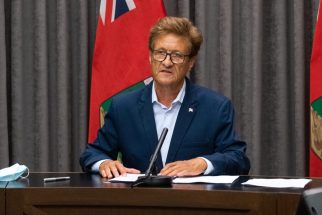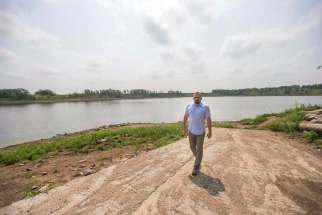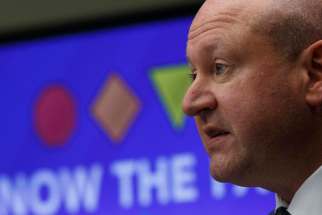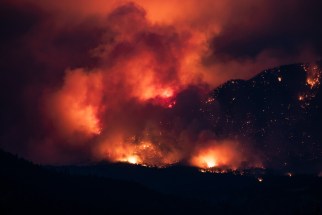European Union issues a climate-plan challenge
Read this article for free:
or
Already have an account? Log in here »
To continue reading, please subscribe:
Monthly Digital Subscription
$0 for the first 4 weeks*
- Enjoy unlimited reading on winnipegfreepress.com
- Read the E-Edition, our digital replica newspaper
- Access News Break, our award-winning app
- Play interactive puzzles
*No charge for 4 weeks then price increases to the regular rate of $19.00 plus GST every four weeks. Offer available to new and qualified returning subscribers only. Cancel any time.
Monthly Digital Subscription
$4.75/week*
- Enjoy unlimited reading on winnipegfreepress.com
- Read the E-Edition, our digital replica newspaper
- Access News Break, our award-winning app
- Play interactive puzzles
*Billed as $19 plus GST every four weeks. Cancel any time.
To continue reading, please subscribe:
Add Free Press access to your Brandon Sun subscription for only an additional
$1 for the first 4 weeks*
*Your next subscription payment will increase by $1.00 and you will be charged $16.99 plus GST for four weeks. After four weeks, your payment will increase to $23.99 plus GST every four weeks.
Read unlimited articles for free today:
or
Already have an account? Log in here »
Hey there, time traveller!
This article was published 22/07/2021 (1601 days ago), so information in it may no longer be current.
Sometimes, in order to understand what’s happening far, far away, it’s helpful to take a look at what’s going on much closer to home.
Take, for instance, the climate-change plan unveiled last week by the European Union. By far the most aggressive and specific blueprint to date for tackling the ever-deepening global climate crisis, the EU plan announced in Brussels, Belgium, on July 14 sets accelerated goals for its 27 member nations and issues a direct challenge for the rest of the world to follow suit.
The announcement took place half a world away, but understanding the urgency of the EU’s proclamation requires little more from the average Manitoban than to look outside at the conditions we’re experiencing during this summer of continually distressing environmental discontent.
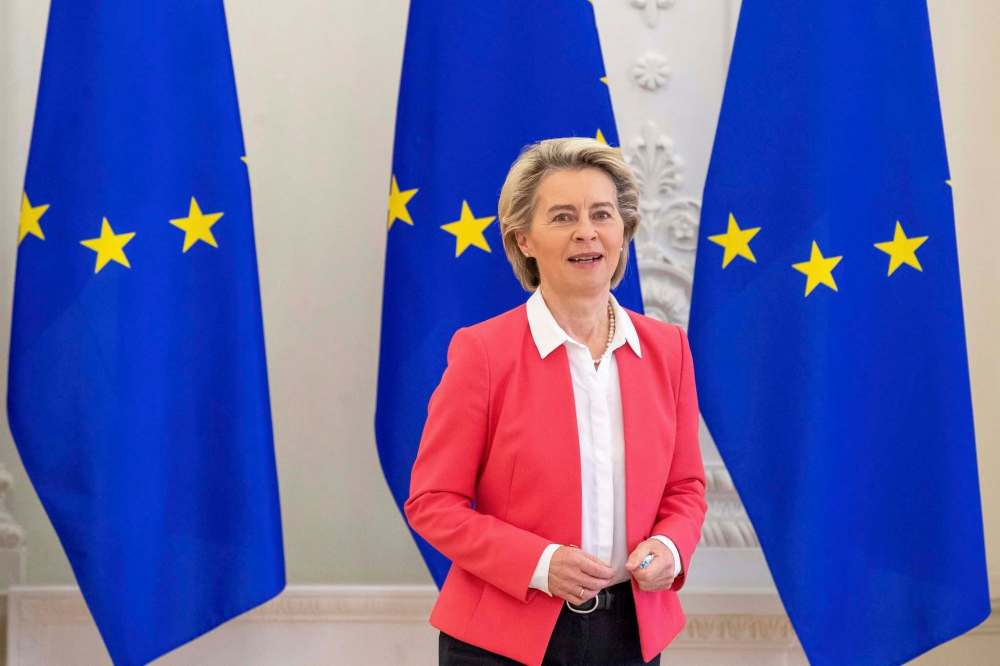
Skies filled with smoky haze that has drifted into our airspace from wildfires spread across several provinces. Extended, record-setting heat waves, both here in Manitoba and all the way to the West Coast. Deepening drought that has prompted several Manitoba municipalities to declare a state of agricultural emergency.
These, as well as the fires ravaging the western U.S. — some so large and intense they’re creating their own weather — the flash floods spreading devastation across Europe and the unprecedented rapid melting of polar ice, are widely accepted as interconnected manifestations of the climate change the EU plan is seeking, with a long-overdue sense of gravity, to address.
It’s an approach Canada and the rest of the world should study very closely.
In the EU’s push toward a carbon-neutral economy by 2050, it has laid out several hard targets that must be met within the next decade. Emissions from cars and trucks will be reduced by 55 per cent and 50 per cent, respectively, by 2030, and emissions from (and sales of) new gasoline-fuelled vehicles will be completely eliminated by 2035.
“Our current fossil-fuel economy has reached its limit,” said Ursula von der Leyen, president of the European Commission, the EU’s bureaucratic arm.
The centerpiece of the EU plan is a unified pledge to reduce net greenhouse-gas (GHG) emissions by 55 per cent (from 1990 levels) by 2030 — hence the program’s “Fit for 55” moniker — as a step toward net-zero emissions by 2050.
In addition to setting specific targets for emission reductions and imposing costs on the transportation and construction sectors, as well as on manufacturers abroad whose products are created under less-stringent environmental standards, the plan will build in supports for poorer EU countries that will be impacted hard by the new standards.
While Canada continues to engage in federal/provincial jurisdictional wrangling over carbon pricing, the EU plan illustrates how much more can and must be done here.
There’s much to be admired about the Europe’s highly motivated effort, but it must be noted that the EU sector accounts for just eight per cent of global emissions. Getting the world’s largest polluters — most notably the United States and China — on board will be the real challenge that follows the EU’s announcement.
The stakes couldn’t be higher. As the lingering haze outside Manitobans’ windows continues to remind, the effects of climate change are all around us, and are accelerating at an alarming rate. The urgent change that is needed will involve hardship, sacrifice and a reframing of the global economy.
“We’re going to ask a lot of our citizens,” said EU climate policy chief Frans Timmermans, “… but we do it for good cause. We do it to give humanity a fighting chance.”

